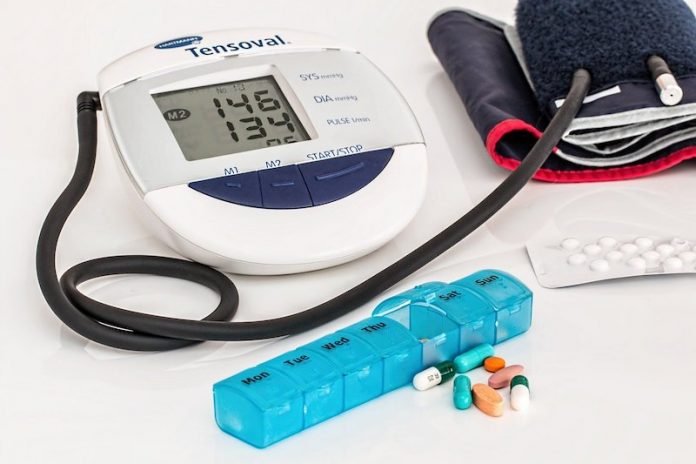
Many people use mouthwash to clean their teeth and gum every day.
But in a recent study from the University of Plymouth, researchers found that when people rinse their mouths with an antibacterial mouthwash, the blood pressure-lowering effect of exercise is strongly reduced.
This means mouthwash use could inhibit the benefits of exercise on heart health.
The study is published in Free Radical Biology and Medicine. The lead author is Dr. Raul Bescos, Lecturer in Dietetics and Physiology at the University of Plymouth.
Scientists already know that blood vessels open up during exercise, as the production of nitric oxide increases the diameter of the blood vessels (known as vasodilation), increasing blood flow circulation to active muscles.
What has remained a mystery is how blood circulation remains higher after exercise, in turn triggering a blood-pressure-lowering response known as post-exercise hypotension.
Previous research has suggested that nitric oxide was not involved in this post-exercise response and only involved during exercise.
It’s all to do with nitric oxide degrading into a compound called nitrate, which for years was thought to have no function in the body.
Some species of bacteria in the mouth can use nitrate and convert into nitrite—a very important molecule that can enhance the production of nitric oxide in the body.
And when nitrite in the saliva is swallowed, part of this molecule is rapidly absorbed into the circulation and reduced back to nitric oxide.
This helps to maintain a widening of blood vessels which leads to a sustained lowering of blood pressure after exercise.
In this study, the team examined how the activity of bacteria in mouths may determine whether people experience blood pressure health benefit from exercises.
They tested 23 healthy people who were asked to run on a treadmill for a total of 30 minutes on two separate occasions. After that, they were monitored for two hours.
On each occasion at one, 30, 60 and 90 minutes after exercise they were asked to rinse their mouths with a liquid—either antibacterial mouthwash (0.2% chlorhexidine) or a placebo of mint-flavored water.
The team found when participants rinsed with the water, the average reduction in systolic blood pressure was -5.2 mmHg at one hour after exercise.
However, when participants rinsed with the antibacterial mouthwash, the average systolic blood pressure was -2.0 mmHg at the same time point.
Systolic blood pressure refers to the highest blood pressure level when the heart is squeezing and pushing the blood around the body.
These results show that the blood pressure-lowering effect of exercise was diminished by more than 60% over the first hour of recovery, and totally abolished two hours after exercise when participants were given the antibacterial mouthwash.
These findings show that nitrite synthesis by oral bacteria is hugely important in kick-starting how our bodies react to exercise over the first period of recovery, promoting lower blood pressure and greater muscle oxygenation.
The researchers say that health professionals should pay attention to the oral environment when recommending interventions involving physical activity for high blood pressure.
They will examine in more detail the effect of exercise on the activity of oral bacteria and the composition of oral bacteria in individuals under high heart disease risk.
Copyright © 2019 Knowridge Science Report. All rights reserved.



